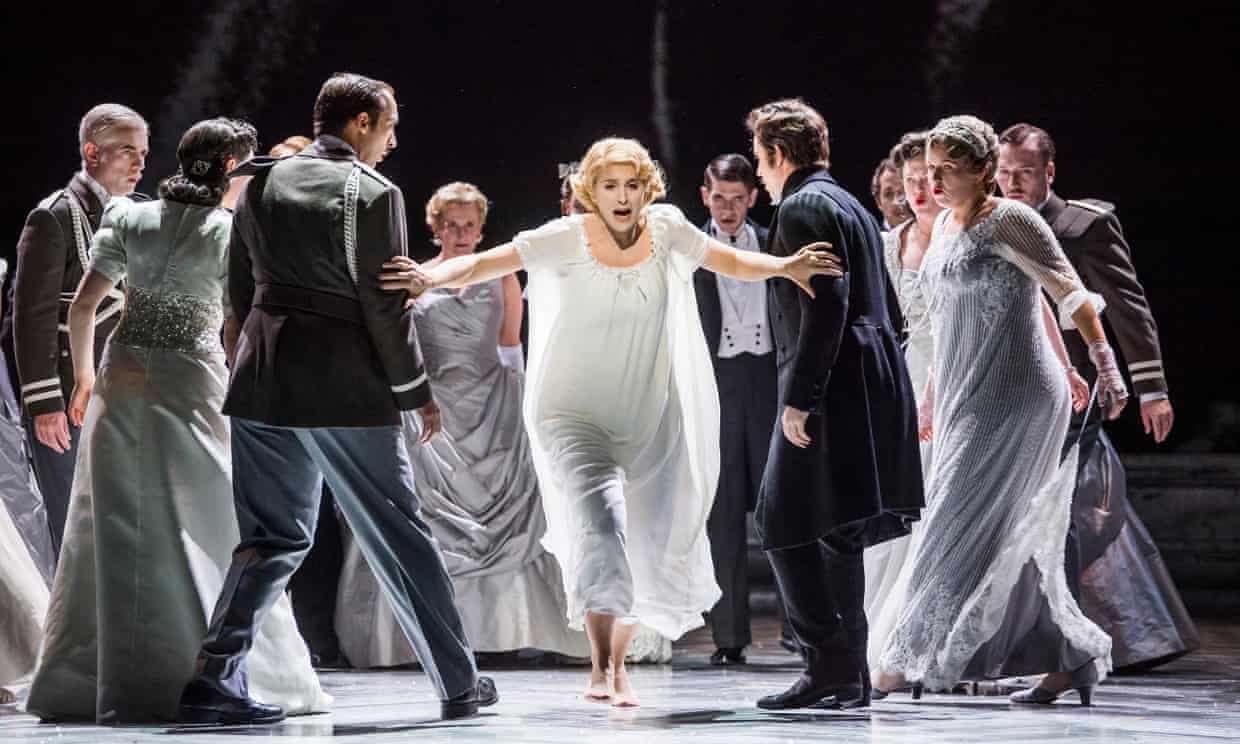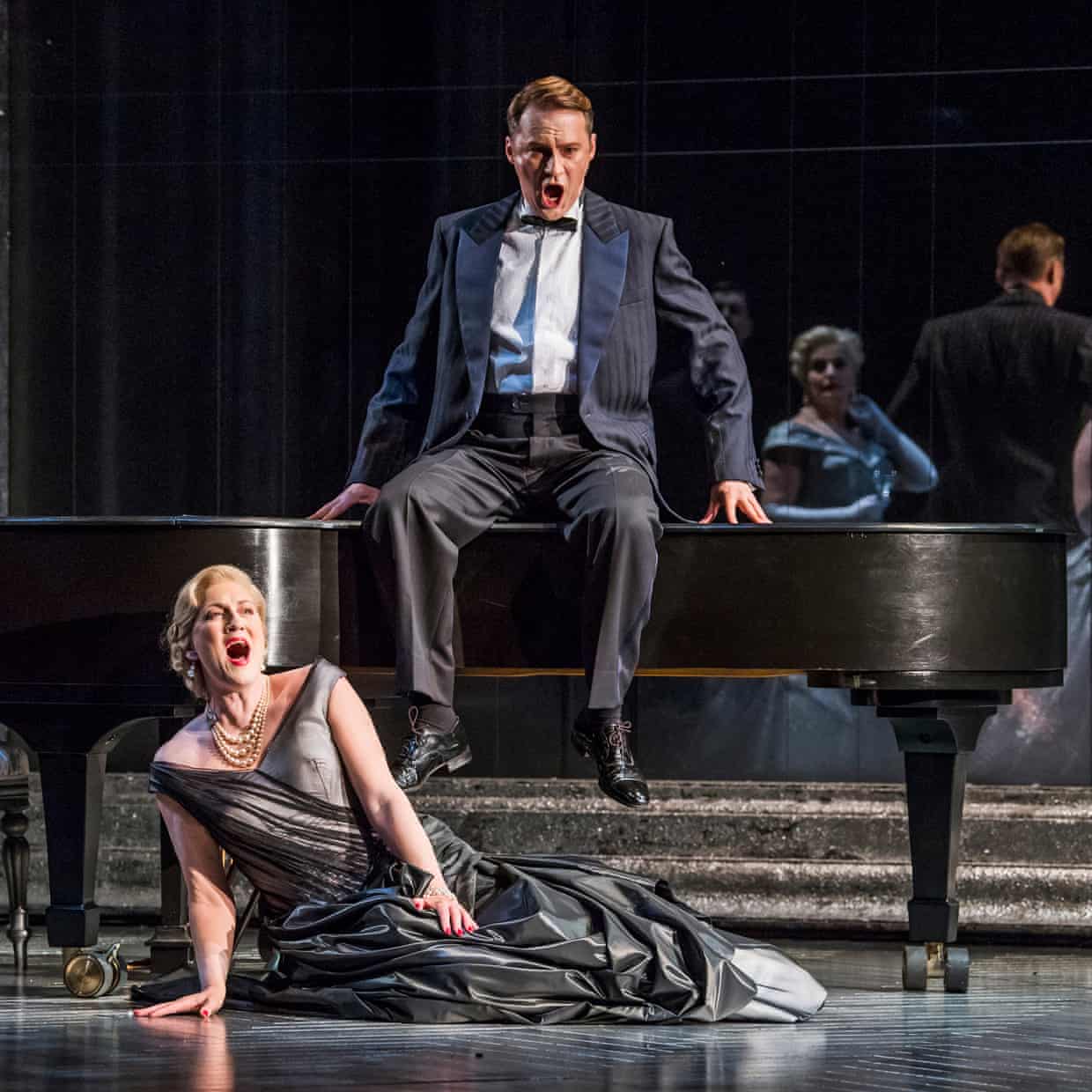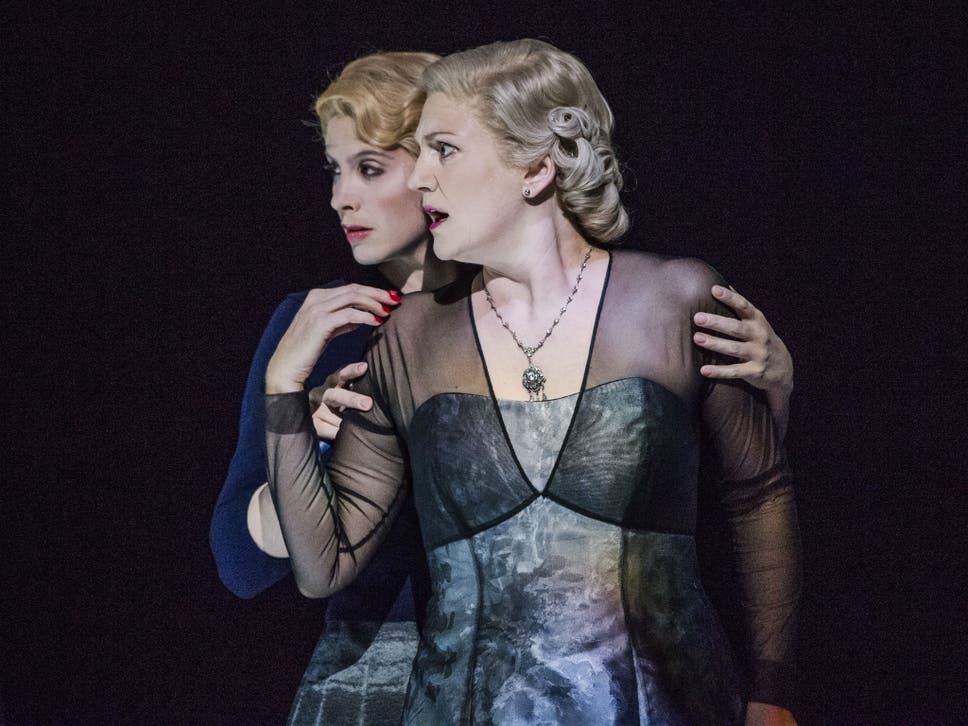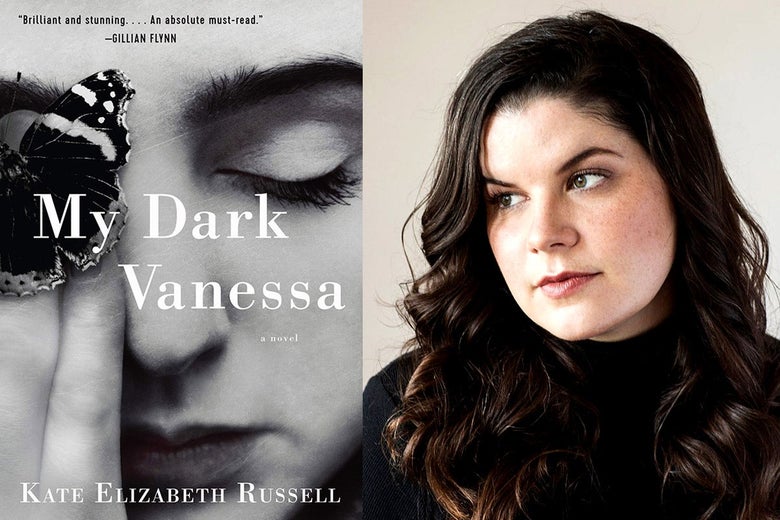Vanessa review – Barber's opera finds its time with intelligent, gripping staging
Glyndebourne, LewesKeith Warner’s new production features a compelling performance by Emma Bell at its centre, with the London Philharmonic under Jakub Hrůša also very impressive
‘Somehow the opera itself has grown immeasurably with time,” director Keith Warner writes in a programme note for his new Glyndebourne staging of Samuel Barber’s Vanessa, a work much neglected after its New York premiere in 1958, but which in recent years has come into its own. Its first critics, hankering after the creation of an American operatic style in the wake of the McCarthy era, deemed Barber’s post-Romantic idiom, and his choice of a subject he considered universal rather than national, to be overly dependent on European models. The slow process of re-evaluation, however, has focused on the work’s emotional directness and its often remarkable dramatic cogency.
Setting a libretto by Barber’s partner, Gian Carlo Menotti, Vanessa examines the conflicts and disparities between romantic idealism and emotional reality in the lives of three women immured in a remote mansion in an unspecified “northern country”. After waiting 20 years for the return of her former lover Anatol, Vanessa finds herself confronted by his son of the same name, to whom she becomes obsessively drawn, oblivious to the fact that he is a shameless opportunist. He, meanwhile, seduces Vanessa’s niece Erika, whose growing desire for him is tempered by her awareness of his inability to love, and who determines not to bear his child when she discovers she is pregnant. Watching and judging is Vanessa’s mother, the Baroness, a formidable arbiter of moral truth, who refuses to speak to anyone she considers to be living a lie.
Barber and Menotti set their opera in the fin-de-siècle world of 1905. Warner, however, updates it to the time of composition and explores its secrets, lies and evasions by drawing on the imagery of 40s and 50s thrillers and film noir. A hall of mirrors, reminiscent of Orson Welles’ The Lady from Shanghai, reflects back on the characters the unpalatable truths they are unwilling to face, while the gender polarities of Hitchcock’s Vertigo are reversed as Emma Bell’s Vanessa tries to make over Edgaras Montvidas’s Anatol in the image of his father. Questionably, however, Warner suggests backstories that Barber and Menotti leave unspoken. Flashbacks reveal that Rosalind Plowright’s Baroness was once involved with the local Doctor (Donnie Ray Albert). There are hints that Virginie Verrez’s Erika may not be Vanessa’s niece at all, but her illegitimate daughter by the elder Anatol. Warner’s interventions muddy the narrative in places, but nevertheless this is intelligent music theatre that proves consistently gripping.
Musically, it’s hugely impressive, too. Bell gives one of her finest performances to date, beautifully acted, her voice soaring with elation and anguish, even as Vanessa becomes increasingly deluded as to Anatol’s true nature. Montvidas is all seductive elegance, but his charm can turn to cynicism in a flash when his guard is down, and we fully understand why Verrez’s proud, sensual Erika finds him both so attractive and so suspicious. Plowright strikingly suggests a woman whose view of the present is haunted by the sadness of her own memories, while Albert convinces as a man who can mend men’s bodies, but singularly fails to understand their souls. Jakub Hrůša, conducting with tremendous passion, really opens the emotional floodgates, sweeping us away in the big set pieces, while the London Philharmonic Orchestra’s playing is at once sumptuous and superbly detailed.
- At Glyndebourne, Lewes, until 26 August.
Culture > Classical > Reviews
Vanessa, Glyndebourne Festival Opera, review: Worth
the wait for this winningly performed production
Barber's 1958 opera once seemed outdated, but it
has recently enjoyed a number of major revivals including this first full-scale
professional staging in the UK
George Hall
Monday 6 August 2018 10:00
Vulnerability and self-obsession: Erika (Virginie
Verrez) and Vanessa (Emma Bell) in Vanessa, Glyndebourne Festival ( Tristram
Kenton )
Back in January 1958 Samuel Barber’s opera Vanessa
was well received at its New York premiere,
though following a poor critical reception in Salzburg
The problem was one of timing. At a point when serialism
was the shibboleth for a new generation of composers, Barber’s adherence to
post-Romantic lyricism, with its echoes of Richard Strauss rather than
Schoenberg, must have seemed hopelessly and almost perversely outdated.
But times have changed. In today’s more pluralist
classical world, Barber’s first full-length opera is being looked at again and
has recently enjoyed a number of major revivals. Wexford presented it
successfully in 2016, and now Glyndebourne follows up with what is the first
full-scale professional staging of the piece in the UK
ADVERTISING
Ads by Teads
It has been worth the wait. Barber’s score is
technically impeccable. Himself a singer of some distinction, he writes for the
voice with confident skill, while his orchestration is a thing of consistent
beauty and imagination, its virtues marvellously displayed at Glyndebourne by
the London Philharmonic under conductor Jakub Hrusa.
Read more
Tete A Tete festival: Mary’s Hand, review: 'A modest
gem of a show'
The best alternative hip opera shows to see this
summer
Falstaff, review: Plodding and earthbound, despite
Bryn Terfel
Doubts will remain about the libretto, by Barber’s
long-term partner Gian Carlo Menotti. In his original scenario, set in some
unspecified Northern country around 1905, Vanessa keenly awaits the arrival of
her former lover Anatol, a man she last saw 20 years before. But when he turns
up it is not the Anatol she knew – who is dead – but his son, who quickly
engages her affections as well as those of her niece, Erika. The surprise
ending sees Vanessa and Anatol set off for a new life in Paris
Menotti’s would-be poetic text is not always
fortunately phrased, and Keith Warner’s production arguably hints at answers to
nagging questions about the true relationship between the three central
characters that are better left ambiguous.
Other than that, Warner and his designer Ashley
Martin-Davis do a fine job in suggesting a hothouse emotional temperature in a
cold Northern clime, and the neediness of the two women whom the shallow Anatol
finds he can wrap round his manipulative fingers.
All three roles are winningly performed. Emma
Bell’s tensile soprano charts the central character’s vulnerability and
self-obsession. Though French mezzo Virginie Verrez could do with clearer
diction, she takes us right inside the inexperienced Erika’s mindset. Edgaras Montvidas’s
clean-cut tenor conveys the confident charm that brings Anatol easy conquests.
Standing out from the surround are Rosalind
Plowright as the dignified, taciturn Old Baroness who knows far more than she
lets on, and Donnie Ray Albert as the loyal family Doctor. Glyndebourne may
have turned its attention to Barber’s opera belatedly, but they have done him
proud.
Until 26 August (glyndebourne.com)
More about:
Glyndebourne |
Festival | Opera | Samuel Barber
Show comments
&&&&&&&&&&&&&&&&&&&&&&&&&&&&&&&&&&&&&&Book:
The Controversial Novel That Immerses Readers in Teen Abuse

My Dark Vanessa William Morrow
“What kind of monster,” a Facebook commenter asks on the first page of My Dark Vanessa, “could do that to a child?” It’s an instantly provocative question, which Kate Elizabeth Russell’s first novel—one of the splashier literary debuts of the year—immediately begins to complicate: The gulf between the person telling the story and the reader receiving it may feel as unconquerable as the Mariana Trench. Vanessa, who is 15 when she first meets the English teacher Jacob Strane and 32 when Strane is implicated in a string of abuse allegations, is a fiendishly difficult, almost willfully blinkered narrator. Her account of what happened between her and Strane flips disconcertingly between the rote patter of a cult victim and flashes of acute insight.
I, me, I. Vanessa’s solipsism can be overwhelming, more so because Russell allows the reader to see what Vanessa can’t: This story is about damage, not love. Strane is a pedophile, and Vanessa is his victim. I can’t, despite Vanessa’s insistence, bring myself to describe what happens in the novel between Strane and Vanessa the way she does, as a “relationship,” or a “romance,” or “destiny.” But Vanessa refuses to categorize it as abuse. “In someone else’s mouth the word turns ugly and absolute,” she argues. “It swallows up everything that happened.” My Dark Vanessa is a minefield in which language itself has been weaponized. Vanessa is both a smothering presence and a troubling void, a narrator who often feels disassociated from her own story.
Russell’s evolving conception of My Dark Vanessa may explain why Vanessa’s story veers so wildly between obsession and disgust, between her steadfast defenses of Strane and her flashes of insight. They first meet at a Maine boarding school, where Vanessa is a freshman and Strane is an English teacher with a practiced air of pomposity and a whispered-about reputation. Russell scatters enough bread crumbs early on that the reader can see what kind of man Strane is straightaway: His eye alights on one of the prettiest girls in class, Jenny, before he notices Vanessa and starts feeling out her vulnerabilities, manipulating her loneliness into a sense of uniqueness instead. “I like to be by myself, too,” he tells her. “My first impulse is to say no, I don’t like being by myself at all, but maybe he’s right,” Vanessa thinks. “Maybe I’m actually a loner by choice.” Even in their earliest interactions, he’s rewiring the way she thinks, the way she understands herself.
Vanessa’s story is almost identical to one the writer Katie Roiphe recalls in her new nonfiction collection, The Power Notebooks. In a short essay, Roiphe describes a sexual “relationship” (the meaningful quotation marks are Roiphe’s own) she had with a 30-something rabbi when she was 15, Vanessa’s age. She compares herself to the novelist Jean Rhys, who was similarly preyed on at 14 by an older man who left Rhys “dreadfully attracted, dreadfully repelled,” but who mostly “talked about me, me, me … It was intoxicating, irresistible.” Roiphe wonders if she was drawn in by the same desire for attention, the same vulnerability in the hands of someone willing to focus so intently on a teenage girl.
Teenage Vanessa is right about one thing. She is unexceptional, in the sense that she’s a conventional 15-year-old enthralled by Fiona Apple, by melancholy, by sex, by the possibility of making someone fall in love with her. She speaks like a teenager. (She tells Strane she thought “that we might, I don’t know, kiss or something,” and when they do, her immediate reaction is to observe “how weird it is that he has a tongue.”) She believes that Strane sees her as a flame-haired soul mate radiating heat and darkness in equal measure. But to the reader, it’s painfully obvious (truly, it caused me pain) that Strane wants Vanessa to be a child. When she sneaks out of boarding school to spend the night at his house for the first time, he stocks the kitchen with ice cream, potato chips, Cherry Coke. She’s stolen a black silk negligee from her mother’s underwear drawer to wear for their first night together. He presents her instead with a gift: a pair of girl’s short pajamas in white cotton with a strawberry print.
&&&&&&&&&&&&&&&&&&&&&&&&&&&&&&&&&&&&&&&&&&&&&&&&&&&
Why Everyone’s Angry About My Dark Vanessa Now
On the heels of the American Dirt controversy comes a new literary dustup.
Photo illustration by Slate. Images by HarperCollins and Elena Seibert.
Another day, another literary scandal involving a seven-figure book deal. Even as details are still emerging in the maelstrom around Jeanine Cummins’ migrant novel American Dirt, there’s already a new Literary Twitter drama brewing, this one concerning Kate Elizabeth Russell’s much-anticipated debut My Dark Vanessa.
My Dark Vanessa, which revolves around the relationship between a teenage girl and her teacher, has drawn praise from the likes of Stephen King, Gillian Flynn, and Kristen Roupenian, author of “Cat Person.” But the book is now embroiled in a controversy similar to the one around American Dirt. Wendy C. Ortiz wrote an essay accusing Russell of borrowing from the real-life experiences of a Latina author—in this case, those in Ortiz’s memoir Excavation—for her own work of fiction. The parallels between the two books are being used as evidence of the entrenched biases and double standards of the publishing industry. Others, though, say that Ortiz’s accusations of plagiarism are hasty and misguided. Here’s what’s going on.
The Book
My Dark Vanessa alternates between the past and present of titular character Vanessa Wye. Vanessa’s present is like ours: In the midst of the national reckoning around sexual assault and abuse brought on by the #MeToo movement, she is re-evaluating a relationship she had when she was 15 with her 42-year-old English teacher Jacob Strane. In 2017, Strane is accused of sexual abuse by another former student, who reaches out to Vanessa. As the publisher summarizes it: “Now Vanessa suddenly finds herself facing an impossible choice: remain silent, firm in the belief that her teenage self willingly engaged in this relationship, or redefine herself and the events of her past. But how can Vanessa reject her first love, the man who fundamentally transformed her and has been a persistent presence in her life? Is it possible that the man she loved as a teenager—and who professed to worship only her—may be far different from what she has always believed?”
My Dark Vanessa was included on both the New York Times’ and the Guardian’s most anticipated books of 2020, with the latter likening it to “an inversion of Lolita for the #MeToo generation.” In interviews, Russell has said that she’s been working on the book since she was 16 and that the project began as a memoir, with the character of Vanessa based on Russell herself. She says the character of Strane, however, was always intended as a composite of older men that Russell was involved with as teenager. “I knew what was at stake for them, didn’t want to betray them—but now I see it as an empowering decision for me both as a woman and a writer,” she told Entertainment Weekly. “Fiction gave me the freedom to center my own emotional experience rather than focus on the details of what exactly an older, powerful man did or didn’t do to me.”
The Other Book
On Wednesday, Ortiz published an essay in Roxane Gay’s Medium publication Gay Magazine about the trials that she faced in securing a literary agent and selling Excavation, which primarily deals with “her relationship with a charming and deeply flawed private school teacher fifteen years her senior.” She begins the essay by explicitly comparing the situation to American Dirt, then writes that “a white woman has written a book that fictionalizes a story many people have survived and the book is receiving tremendous backing and promotion. The book this time, though, is titled My Dark Vanessa. The book I wrote, Excavation, is a memoir with eerie story similarities, and was published by a small press in 2014.”
The bulk of Ortiz’s essay deals with her encounters with white literary gatekeepers who assure her that her writing is “powerful” and “striking,” that her memoir is “powerful and complex” and that “her story should absolutely be heard,” but then also tell her that there’s no room in the market for her memoir, which is at once too original and too similar to other memoirs to make it worth buying. Ortiz eventually published Excavation with a small press, went on a self-planned book tour, and, a year later, put her book up for auction to be reprinted with a big publisher, only to be met “with radio silence.” When she learned of My Dark Vanessa from an online summary, “it sounded so much like Excavation I thought I was going to pass out.”
Ortiz admits that in her essay that she has not read Russell’s book, nor does she intend to, writing on Twitter that she is “uninterested in reading a book that sounds like a fictional take on a reality she lived.” Soon after Ortiz mentioned on Twitter that she was “‘looking forward’ to the book that sounds like [hers] coming out in March,” she says Russell reached out to her.
Apparently it had come to her attention that people were comparing the books and were upset. She confirmed that she had read Excavation in 2015, and offered a number of other influences in the writing of her novel. I dealt with this email the way I deal with things I don’t need in my life: I put it in a folder and decided I didn’t need to look at it further. Before I did that, I forwarded it to two other trusted people, to make sure my rage was proportionate. The consensus was that there were suddenly an awful lot of justifications, a little too late. The questions I have about it go unanswered.
The Controversy
Ortiz’s account of her experiences with the publishing industry, which is 76 percent white and difficult for writers of color to break into, has struck a chord, especially on the heels of American Dirt.




